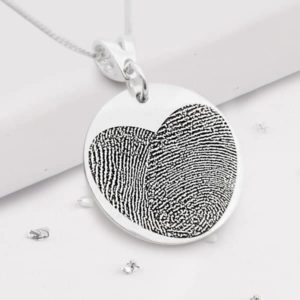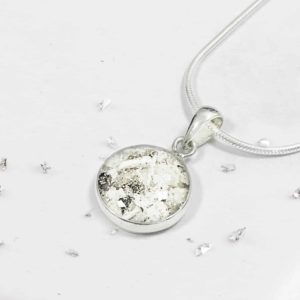It seems like everyone has social media these days. Sharing our photos, opinions, events, and musings in real time has changed the world, and has certainly transformed the way we do business. Companies large and small use social media as a major facet of their marketing plans, and a whole new wave of online ‘influencers’ are now becoming as famous as movie stars and pop idols.[1]
With the importance of social media to our daily lives and business strategies, it’s important to think about what would happen to your social media accounts in the event of your death, or the death of someone you love. Will your accounts be left open in the ether, representing you and your business long after you’re gone? This is another important thing to think about when considering what to do when a loved one passes away.
Every social media platform goes about this in a slightly different way. Here are the digital legacy policies for most of the biggest social media platforms out there, including Facebook, Twitter, LinkedIn, and Snapchat.
What is social media?
Social media platforms are websites and apps that allow people to connect and share content with friends or business contacts in a quick, real-time way. Many people use social media on their smartphones, but most of the original platforms, such as Facebook and Twitter, originated and are still often used on laptop and desktop computers.[2]
Today, a whole new wave of social media apps have been designed purely for use as smartphone apps, including Snapchat, Tik Tok, and Instagram.
What happens to your Facebook after you die?
When you die, a close and trusted loved one can make a request to transform your memorialise your facebook profile. This will freeze the page in time and turn it into a digital memorial.[3] The photos, posts, opinions, and links that you have shared in the past will remain visible online, but no one will be able to log into the account to change them or add to them in the future.
Your legacy contact, who you can nominate in your Facebook settings, will be required to submit a digital copy of your death certificate to start the transition to a memorial page. Once approved, they will be able to approve new friend requests (perhaps someone who you knew, but who did not have a Facebook account during your lifetime), write a pinned post for the top of the page, and change the cover photo. They won’t be able to log in further or change anything else.
You do not have to go the ‘legacy contact ‘ route. You can instead request that your profile is permanently deleted in the case of your death, and all of your past content will disappear.
A memorial profile on Facebook or Instagram can be a comfort to loved ones when a person passes away. Along with memorial jewellery (such as fingerprint jewellery or ashes jewelry), framed photos, and home movies, it can be a way to seek comfort and cherish memories.
What happens to your Twitter after you die?
Twitter has a few different variables for what will happen to your account when you die.[4] Here are the most likely and common outcomes.
- Have someone access your account – The most reliable way to choose what will happen to your account is to make a plan and leave clear instructions to whoever is in charge of your estate. If you want someone else to be able to access your account after you are gone, leave clear instructions for how to log into your account, and what you want done with it in your absence.
Do keep in mind that Twitter has clear rules about this, and their Terms of Service (TOS) state that you cannot transfer your account to another person, even after you die. This means that even if you give the executor of your estate the passwords to your account and written permission to access it, this will only be possible for as long as Twitter thinks you are alive. However, it’s the only way for someone to maintain access to your account.
- Delete the account before you die – If you want to maintain complete control, some experts suggest that you attempt to delete your account before you die. Of course, this is not always possible, and it does take up to 30 days to implement. Twitter’s official Privacy Policy states that it will not be able to fully delete all data associated with the account until approximately 30 days have passed.
Their privacy policy states, “that search engines and other third parties may still retain copies of your public information, like your user profile information and public Tweets, even after you have deleted the information from the Twitter Services or deactivated your account.”
- Have someone you trust log in and delete your account – If this worries you, and you would like your account fully deleted instead of maintained, instruct someone you trust to log in and delete your account as soon as possible after you die.
- Have your executor provide a death certificate to Twitter – You can also have your executor contact Twitter – they have an online form that allows a death to be reported. They will need to provide the “information about the deceased, a copy of your ID, and copy of the deceased’s death certificate.”
- Rely on Twitter’s inactive policy – If no one tweets from your account in 6 months, they will automatically delete the account. This means that if you die, after 6 months your account will likely be deleted due to inactivity.
What happens to your Linkedin after you die?
When a person dies, LinkedIn offers someone they trust the ability to close down the account fully, removing all content associated with the deceased user.[5]
LinkedIn’s official Help Center provides this explanation: “Unfortunately, there may be a time when you come across the profile of a colleague, classmate, or loved one who has passed away. If this happens, we can close that person’s account and remove their profile on your behalf. To start this process, please answer some questions about the person who has passed away. The form can be completed and signed electronically via DocuSign here.”
LinkedIn does not allow any kind of a legacy profile. The account will be fully and permanently shut down.
What happens to your Instagram after you die?
Instagram is owned by Facebook, and so it should come as no surprise that their death policy is similar. They do offer a memorialisation option, and anyone who knew the deceased can request this.[6] They will have to provide proof, but this does not have to be a death certification. They can send a link to the obituary or a news article about the passing. Instagram has faced scrutiny for this, as these links could potentially be faked.
A memorial account on Instagram looks much like a normal account of a living user, and all comments and photos are maintained, frozen in time. However, no new content can be added. Instagram ensures users that they try to “prevent references to memorialized accounts from appearing on Instagram in ways that may be upsetting to the person’s friends and family.”
Family members or loved ones can also try to delete the account, but Instagram does require a death certificate and legal proof that the individual contacting them is the deceased’s lawful representative.
What happens to your Snapchat after you die?
Snapchat, a photo-sharing app that is popular amongst young people, has a very minimal death policy. On their “Contact Us” menu, Snapchat explains, “We are so sorry for your loss. We would like to assist you in any way possible.” You are then prompted to provide a death certificate, after which Snapchat will delete the account permanently.
If this is not what you want, the only other option is to give your log in details to someone that you trust before you die, so that they can access your page.
What happens to your TikTok after you die?
Tik Tok is one of the newest social media crazes out there, the first Chinese platform to strike it big in the rest of the world. They do not have an explicit digital memorial policy, but they are expected to release one in the coming months.
What happens to your Pinterest after you die?
Pinterest also does not have a memorialization policy, and they will only allow someone to deactivate an account if they have the log in information. If you do not have the log in information of a loved one whose account you wish to delete, you can
Email care@pinterest.com.
You will need to give them the following information: Your full name, and the person’s full name and email address, as well as a link to their Pinterest profile. You’ll also need to provide a death certificate or obituary, and proof of your relationship to the person (i.e. a marriage or birth certificate). If their account is linked to a Facebook account, you should delete that account first.
Using an online remembrance book
If you choose to delete (or let lapse) your loved one’s social media account, you could also choose to create a different kind of online memorial. Consider creating or writing in an online remembrance book which allows friends and family to share their thoughts, well wishes, and memories. This will ensure that your loved one has a presence online that you can visit and direct others to when they want to pay their respects.
Reference list
BBC (2015). What happens to your Facebook profile after you die. [online] BBC Newsbeat. Available at: http://www.bbc.co.uk/newsbeat/article/34790918/what-happens-to-your-facebook-profile-after-you-die [Accessed 18 Apr. 2020].
Carroll, E. (n.d.). What happens to your LinkedIn account when you die? [online] The Digital Beyond. Available at: https://www.thedigitalbeyond.com/2014/05/what-happens-to-your-linkedin-account-when-you-die/ [Accessed 18 Apr. 2020].
Everplans. (n.d.). How To Close A Pinterest Account When Someone Dies. [online] Available at: https://www.everplans.com/articles/how-to-close-a-pinterest-account-when-someone-dies [Accessed 18 Apr. 2020].
Hudson, M. (2014). What is Social Media? [online] The Balance Small Business. Available at: https://www.thebalancesmb.com/what-is-social-media-2890301.
Nolo (n.d.). What Will Happen to My Twitter Account When I Die? [online] www.nolo.com. Available at: https://www.nolo.com/legal-encyclopedia/what-will-happen-my-twitter-account-when-i-die.html [Accessed 18 Apr. 2020].
Ritschel, C. (2019). This is what happens to your social media accounts when you die. [online] The Independent. Available at: https://www.independent.co.uk/life-style/social-media-what-happens-when-you-die-instagram-facebook-twitter-gmail-pinterest-a8706126.html [Accessed 18 Apr. 2020].
Staff, T.W. (2019). What Happens to Your Social Media Accounts after You Die. [online] The Walrus. Available at: https://thewalrus.ca/death-what-happens-to-your-social-media-accounts-after-you-die/ [Accessed 18 Apr. 2020].
[1] https://www.thebalancesmb.com/what-is-social-media-2890301
[2] https://www.independent.co.uk/life-style/social-media-what-happens-when-you-die-instagram-facebook-twitter-gmail-pinterest-a8706126.html
[3] http://www.bbc.co.uk/newsbeat/article/34790918/what-happens-to-your-facebook-profile-after-you-die
[4] https://www.nolo.com/legal-encyclopedia/what-will-happen-my-twitter-account-when-i-die.html
[5] https://www.thedigitalbeyond.com/2014/05/what-happens-to-your-linkedin-account-when-you-die/
[6] https://thewalrus.ca/death-what-happens-to-your-social-media-accounts-after-you-die/





